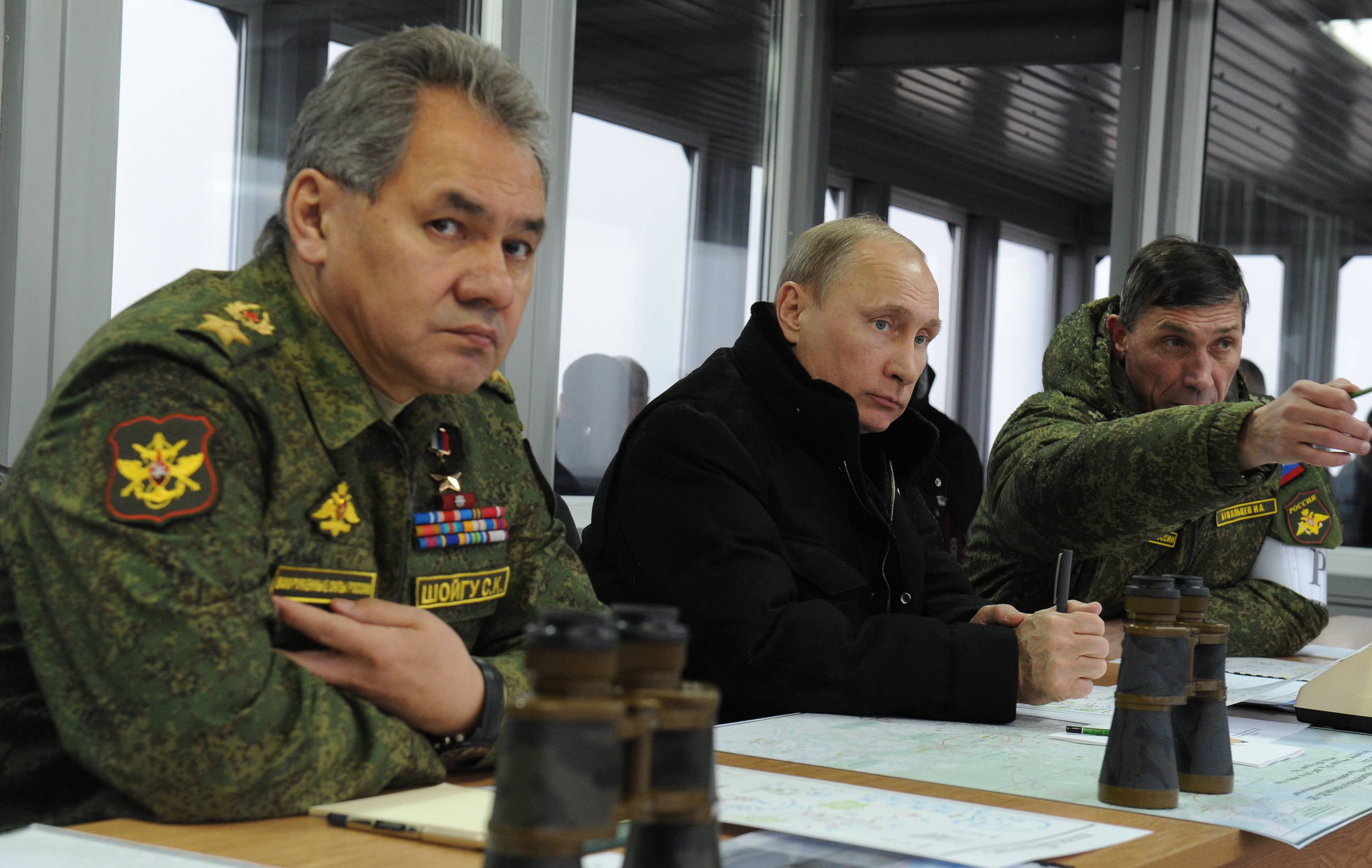
Russia’s President Vladimir Putin (C) listens to the head of the Russian army’s main department of combat preparation Ivan Buvaltsev (R) while watching military exercises at the Kirillovsky firing ground in the Leningrad region, on March 3, 2014, with Defence Minister Sergei Shoigu (L)attending.
Mikhail Klimentyev | AFP | Getty Images
Warnings of a full-scale war and vast troop buildup near the Ukrainian border are giving onlookers more than just a hint of deja vu.
The recent tension has revived memories of the early stages of a conflict that began eight years ago, which saw the Russian annexation of Crimea from Ukraine, and the start of bloodshed in the Donetsk and Luhansk regions in the east of the country, which still continues until this day.
Russia’s seizure of Crimea had its roots in a long history between the two former Soviet states, but it was a destabilized government and street protests in Kyiv in early 2014 that led to Russian President Vladimir Putin making his move.
EU rejection
In November 2013, Viktor Yanukovych, Ukraine’s pro-Russian president, rejected closer ties with the European Union by refusing to sign an association agreement on the eve of a summit in Vilnius, Lithuania.
Yanukovych was pressured by Russia, which subsequently offered Ukraine economic assistance to the tune of $15 billion. But there are also accusations that Brussels and the International Monetary Fund were slow and inflexible with their own plans to bail out Ukraine’s failing economy.
Beeldbewerking | iStock | Getty Images
Markets roiled
A market rally on Wall Street faded Friday afternoon on rumors of the Russian military action. That week also saw the ruble fall to a record low against the euro and a five-year low against the dollar. Ukraine’s hryvnia had already collapsed on fears of a default.
On the Monday after, following a weekend of Ukraine preparing for war, the German DAX — with its heavy exposure to Russian gas — fell 3.3%, it’s biggest fall at the time since May 2012. Russian stocks tanked 10.8% that same day.
Moscow-listed shares of mobile operator MegaFon closed down 11%, while oil firm Rosneft closed down 4%, Gazprom slipped 14.5% and Sberbank sunk 15%. Shares of Russian companies QIWI and Mobile Telesystems were also hit, closing down 11% and 12.6% respectively.
Elsewhere, companies with high exposure to Russia and Ukraine included French carmaker Renault, which fell 5% that Monday, and Italy’s UniCredit, which dropped 4.1%.
‘Little green men’
The Russian president initially denied that the unbadged soldiers in Crimea — now known as Putin’s “little green men” — were Russian troops, before an admission the following month.
Soldiers who were among several hundred that took up positions around a Ukrainian military base stand near the base’s periphery in Crimea on March 2, 2014 in Perevalne, Ukraine.
Sean Gallup | Getty Images
In March, Crimea voted overwhelmingly in favor of leaving Ukraine in a referendum that Europe and the United States said was illegal and triggered sanctions.
On March 21, Putin signed legislation that completed the process of absorbing Crimea into Russia, defying Western leaders like then U.S. president, Barack Obama, who have since faced heavy criticism for being too soft with the Russian invasion.
William Hague, Britain’s then foreign minister, called Russia’s actions “the biggest crisis in Europe in the 21st century.”




